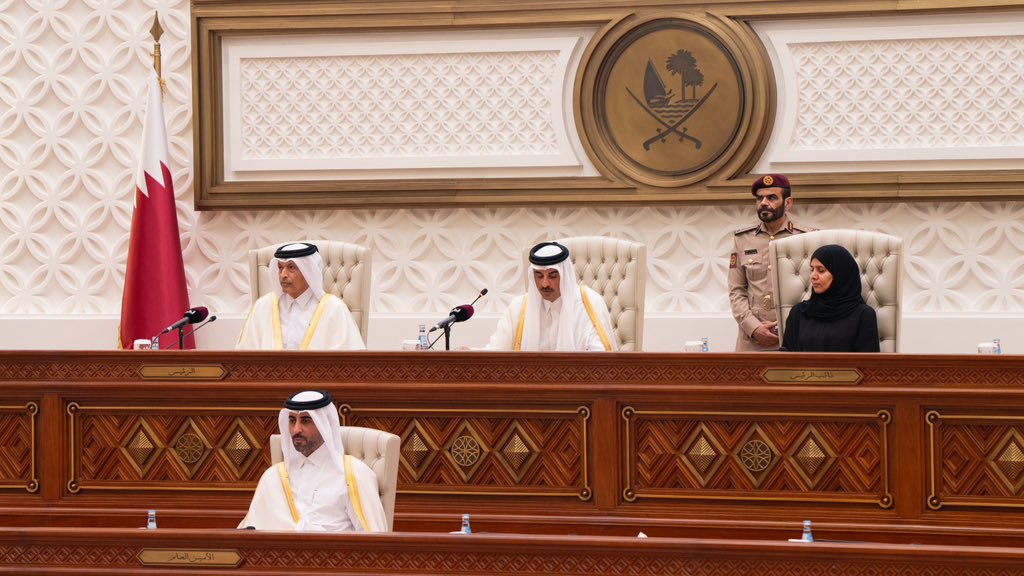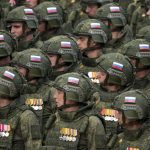In a recent event in Doha, Qatar, the Amir HH Sheikh Tamim bin Hamad Al Thani inaugurated the fourth ordinary session of the first legislative term, corresponding to the 53rd annual session of the Shura Council. The event was graced by the presence of several dignitaries including the Father Amir HH Sheikh Hamad bin Khalifa Al-Thani, Personal Representative of HH the Amir HH Sheikh Jassim bin Hamad Al-Thani, as well as other prominent figures. This significant gathering marked the beginning of a new legislative term, with discussions focusing on various aspects of the state’s economy, growth projections, and financial policies.
During the session, HH the Amir delivered a speech addressing key economic indicators and projections for the state of Qatar. Despite an expected growth decline in the coming years due to project completions related to the World Cup and infrastructure development, the local economy has shown resilience with a steady growth rate. The state’s GDP is estimated to grow by 2% by the end of the current year, with projections reaching 4.1% annually during the medium term (2025-2029) fueled by major projects and initiatives in different sectors.
In terms of financial stability, the state has focused on reducing public debt levels and increasing financial reserves to tackle economic challenges effectively. Public debt has been significantly reduced from 73% of GDP in 2020 to less than 44% by the end of 2023. This strategic approach has led to improved credit ratings and a stable financial outlook for the state. Moreover, the state has allocated resources to support key sectors such as commerce, industry, research, tourism, and digital transformation, aimed at achieving economic diversification and sustainability.
To promote local production and enhance opportunities for the private sector, the state has implemented the in-country value program (ICV) in government procurement, with a focus on developing mechanisms to localize various economic sectors. Initiatives have also been launched to support private agricultural projects, develop the real estate sector, and promote transparency in real estate investments. Additionally, the state has introduced the first sovereign green financing framework in the region to align with sustainable financing practices and boost investor confidence.
In the realm of foreign policy, the state of Qatar continues to prioritize relations with Gulf countries and advance regional integration efforts. The current session of the Gulf Cooperation Council, under Qatar’s presidency, aims to support joint action and foster cooperation among member states. The state’s foreign policy is grounded in fundamental principles, emphasizing dialogue, preventive diplomacy, and peaceful conflict resolution. Qatar remains actively engaged in addressing global challenges and promoting international partnerships for the greater good.
In a defining moment during the session, HH the Amir outlined constitutional and legislative amendments aimed at promoting equal citizenship and enhancing popular participation in public affairs. These amendments underscore the commitment to unity, justice, and equality among members of Qatari society. The proposed changes, including a return to the system for appointing members of the Shura Council, reflect a progressive approach towards strengthening national unity and civic engagement. The upcoming popular referendum on these amendments signifies a pivotal moment in shaping the future of the nation.
As the session concluded, HH the Amir expressed gratitude to all participants and stakeholders, emphasizing the importance of unity, faith, and resilience in overcoming challenges and building a prosperous future for Qatar. The closing remarks echoed a sense of optimism and determination towards achieving common goals and serving the country with dedication and integrity. The session encapsulated a pivotal moment in Qatar’s legislative journey, showcasing a commitment to progress, inclusivity, and national development.































